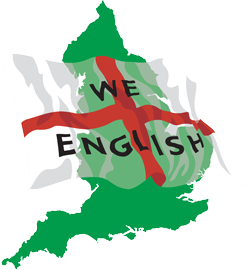QUOTES ON ENGLISHNESS
April 30th, 2008 adminI’ve just comes across this article by Amelia Hill in the Observer called The English identity crisis: who do you think you are? (Sunday 13 June 2004). It features some interesting quotes on the topic of Englishness-
The first quote is from Harold Roberts who considers himself to be one of England’s last true Englishmen. Now 74, he has been farming in the heart of land straddled by the Cotswolds and the Bredon and Malvern hills since he was eight years old.
“I don’t understand how anyone can feel English when they don’t have a connection with the English soil. The soil is my identity: it is as important to me as contact with living people. It is who I am, where I come from and, in the end, where I will go.”
Another quote comes from Paul Gilroy, London-born professor of Sociology and African American Studies at Yale University and author of There Ain’t No Black in the Union Jack.
“There is an anxiety about what it means to be English today that has reached a level of urgent intensity in the past five years,’ he says. ‘We are returning to a nativist interpretation of what England is, which can only lead to misery – both for incomers being bullied into adopting a version of Englishness, and for those born here, who are destined to be bitterly disappointed by eternally unmet, unrealistic expectations.”
Linda Colley, author of Captives: Britain, Empire and the World 1600-1850, argues that “Englishness is a new concept: a word that has only recently been invented. For any people to try to pin down their identity as though it is a captive butterfly is simply wrong: people are able to have more than one identity and the fact we’re returning to trying to limit ourselves to one identity is a sign of a growing insecurity and uncertainty.”
Colley believes that the recent search for Englishness is the reaction of a nation feeling squeezed out of existence by Europe on the one side, and by the devolution of power to Scotland, Wales and Northern Ireland on the other.
This is rebutted by Sir Bernard Crick, author of George Orwell: A Life and a book of political essays, Crossing Borders, who says “There is nothing to be ashamed of in trying to establish what it means to be English, any more than there is something to be ashamed of by defining what it is to be Scottish or Welsh. Englishness is something to be proud of and protected. A determination to discover what Englishness is, is a sign we are ready to become stronger as a nation. It was when we did not dare ask the question that we were weak.”
Professor Roger Scruton, philosopher and author, believes the English are facing one of the most dangerous moments in their history: “If people don’t have a social and an individual identity, they have no way of identifying with their neighbours or anyone else. That way lies social chaos, which is a potentially violent place to be.”
Sunder Katwala, general secretary of the Fabian Society, believes part of the problem is that, while Britishness has been defined and redefined over the generations, Englishness has remained untouched. “We knew what Britishness was, so it could be adopted, adapted and pluralised”, he says. ‘This is why we have British Asians but not English Asians. But far from being weakened by the lack of definition, the fact that we can’t define Englishness means we can still create it depending on what we want it to be. That very nebulousness has enabled the English to absorb new cultures and influences with fluid ease.”


December 3rd, 2009 at 3:51 pm
Tolkien’s ‘The Lord of the Rings’ is used as a reference book for the course. In it there are references to the abuse of power of the English and to Edward 1st Scottish wars, to the resultant Border Reivers,the public encaging of Isabelle, Newcastle’s Black Gate as well as to the North-east English and Scottish landscape. The course’s suggestion that readers should just read the sections on the Shire is not within the context of the Englishness implied in the whole book.
November 1st, 2011 at 6:06 am
sweet work, love your design, suits the blog well 🙂